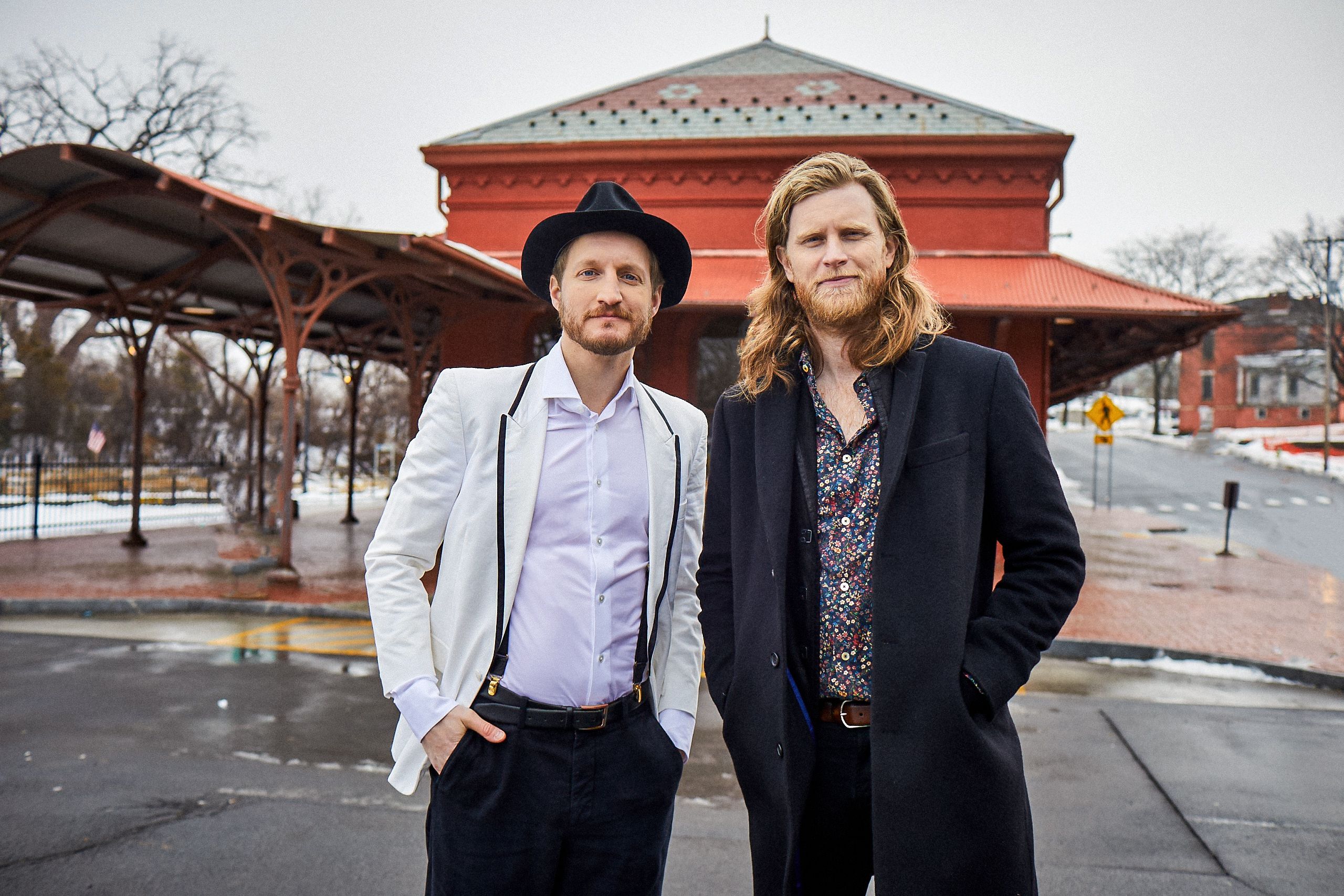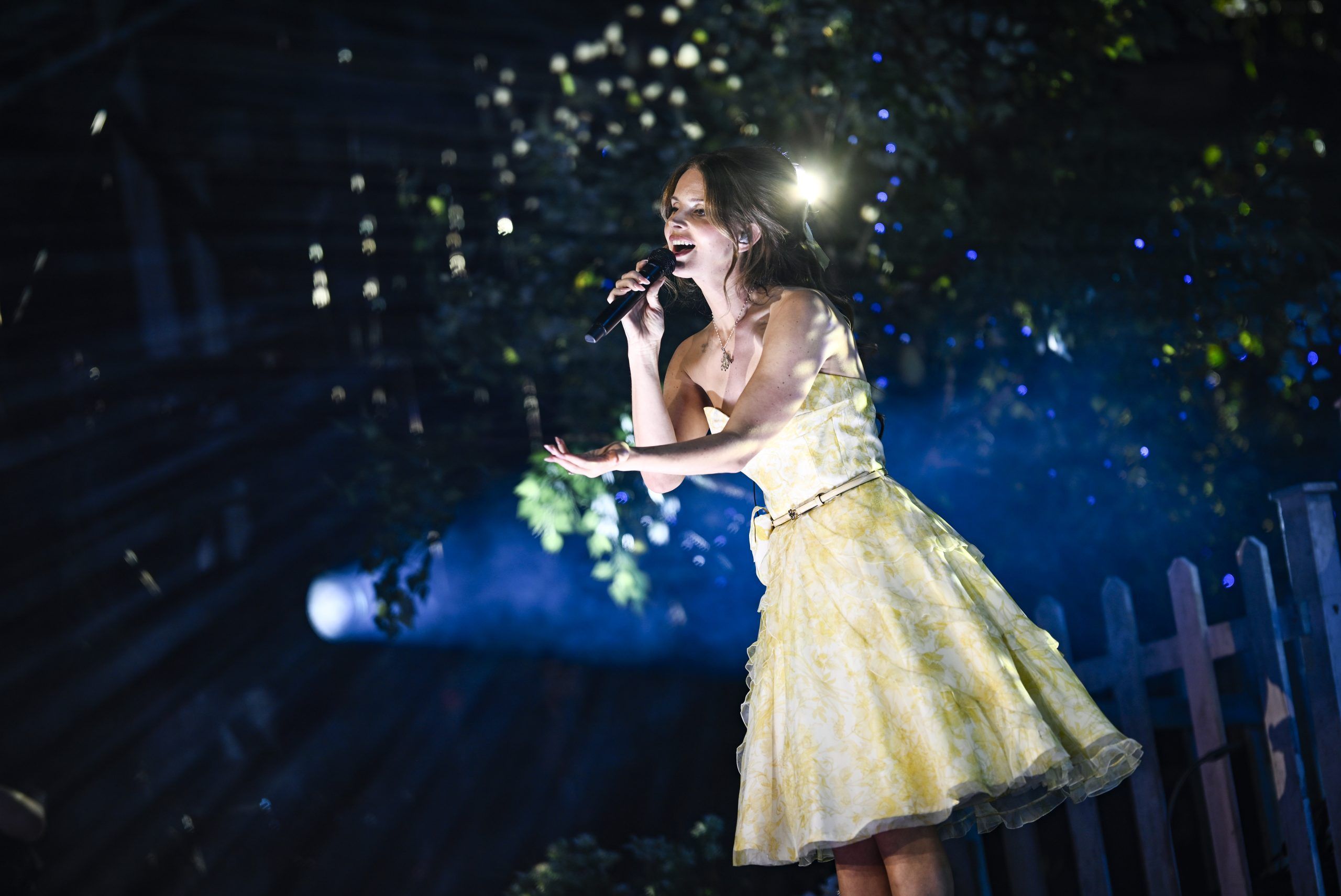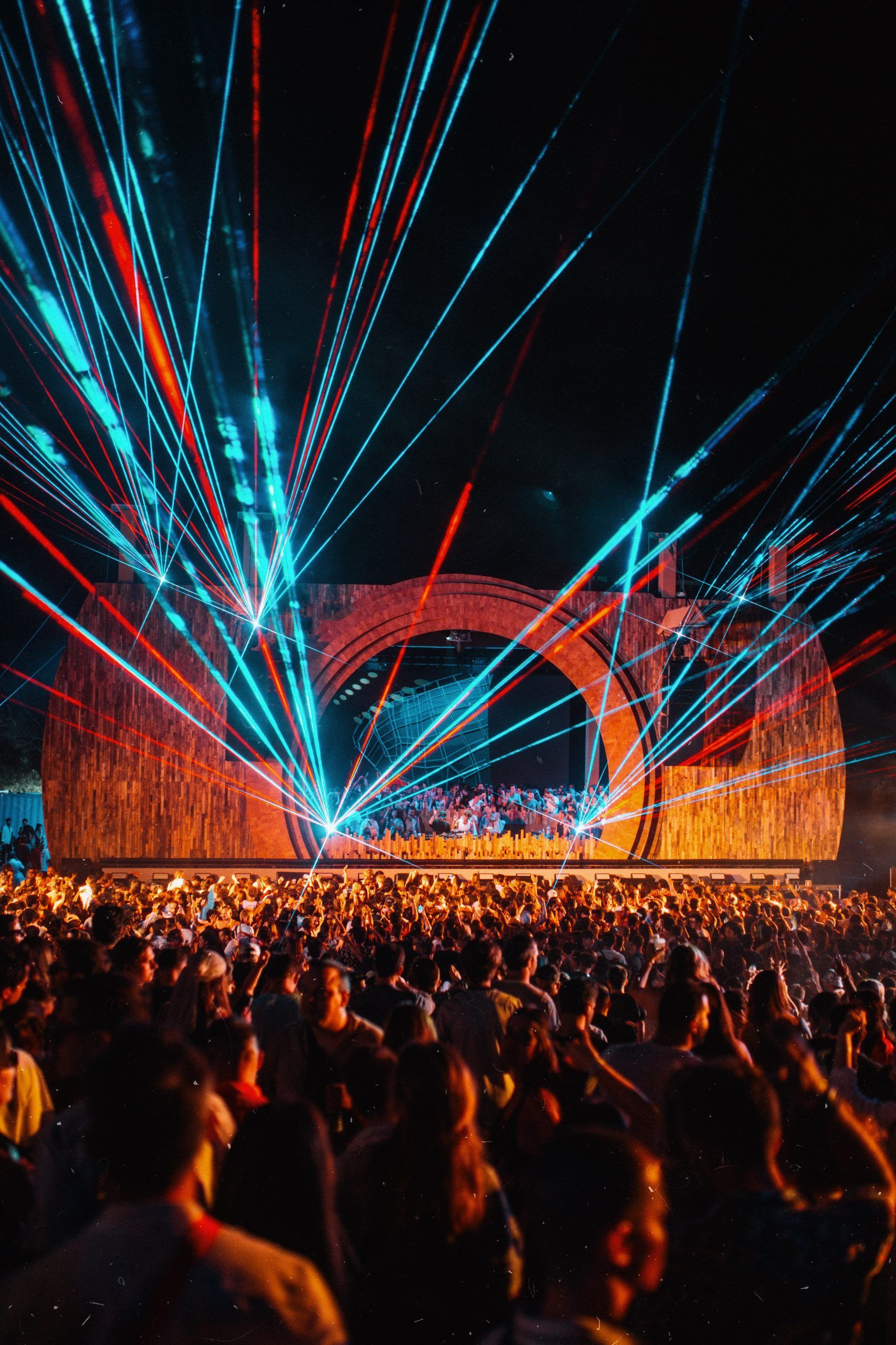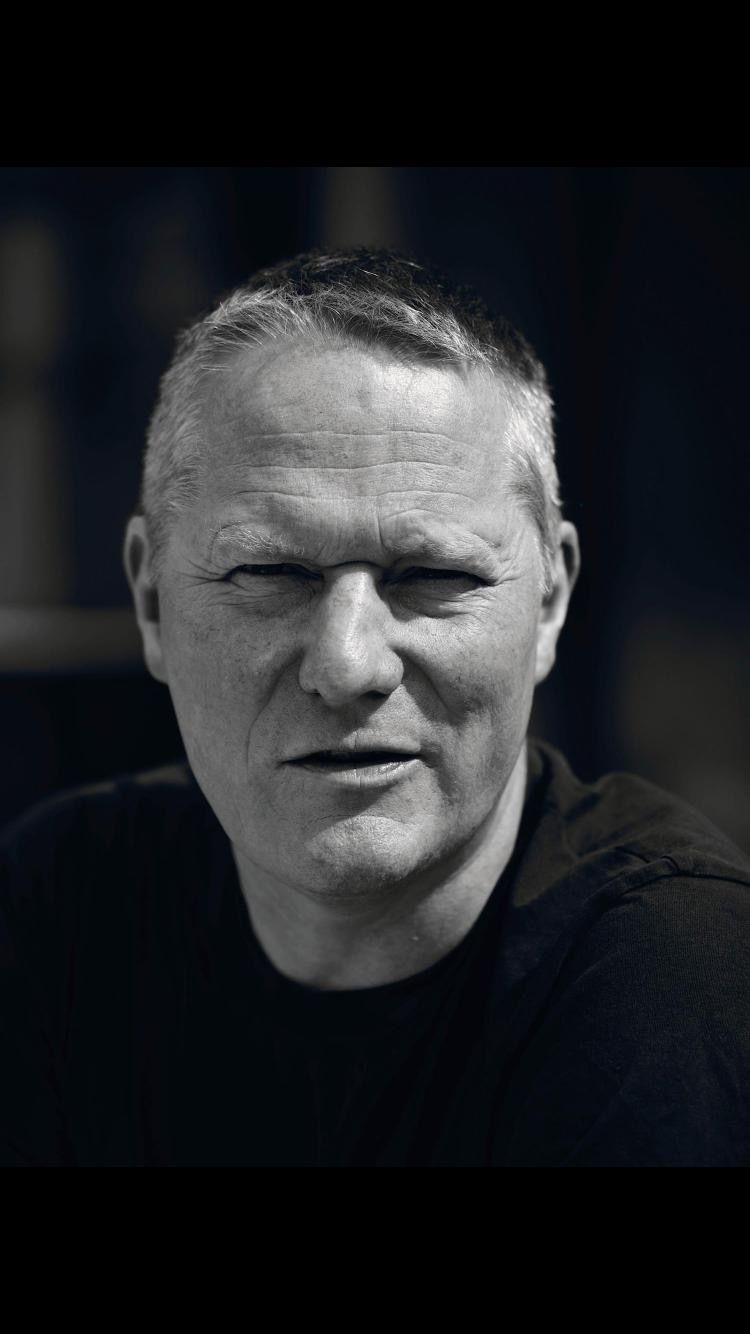Grammy-nominated band The Lumineers return with BRIGHTSIDE, an album full of childlike wonder and mischief.
After garnering a loyal fanbase and critical notoriety with the success of their first three albums, The Lumineers, consisting of co-founders and co-songwriters Wesley Schultz and Jeremiah Fraites, are back with their highly anticipated fourth studio album, BRIGHTSIDE. Produced in only two sessions with longtime collaborator Simone Felice and produced, mixed, and engineered by David Baron, the album is a nostalgic homage to youth and emotion. Their latest single, the titular BRIGHTSIDE, is an effervescent and tender track that teases what’s to come on the rest of the album.
1883 Magazine was able to chat with Wesley Schultz from The Lumineers ahead of BRIGHTSIDE‘s 2022 release in to learn more about the story (or lack there-of) behind the album, how a road trip with his wife inspired the lead single, and what he hopes fans take away from the record.
First of all, congrats on the new album! How does it feel to be releasing new music after a while? Nerve-wracking? Exciting? A mix of both?
It feels really exciting. It’s something tangible. Something to wrap your arms around. We did this, we’re proud of this, it seemed to heal us and I hope it helps people in some small way to heal or feel relief because that’s what music has been to me. Not to say to ignore the pain or look away, but to talk about it. I had Bleachers on the other day – my son and I are always in the kitchen together, so we put on their album and there’s that song, ‘Everybody Lost Somebody’, and I don’t know why but it makes me feel not so alone, and I was tearing up looking at my son and thinking that’s what’s so strange about music. Like if you just read what I’m singing, you would think it’s making me sad, but it gives me so much solace and I think that’s what music does for a lot of people and I’m not alone in that. My mom always asks, “Is this going to be more happy-clappy?” and I’m like, “Never say that again”. She’s from that Beatles generation where she wants it to all be upbeat, but I’ve always been enamoured with the sad songs. So I think we’re really sadly subversive, and I think a lot of my favourite songs are like that where you’re talking about something really sad but dressing it up in this pleasant way so that you’re forgetting how ugly the message is.
I feel like you’re definitely not alone in that. So give me a little back story on the single, “BRIGHTSIDE”. You described it as “an American love story in all its glory and heartbreak”. What was the inspiration and how did it come about?
It’s a flood of memories, that’s what the song is. Just a rush of memories like when you smell something and it brings back all these childhood memories or someplace or person you were with, so a lot of what I was drawing upon for the lyrics were these visions or vignettes of early days, especially with my wife when we started out and our early touring. In the beginning, you’re just down for whatever, like, “Let’s get in a van and do it.” Every trip my wife and I went on was in this beat-up old Camry that had like 200,000 miles on it and a crack in the window – we called her Penny, she was my wife’s car. Once, we went to this really nice hotel because I finally had a bit of money and wanted to take her there, and the guy was like, “Okay, which car is yours?” because they kept track of it at the front desk. We just looked around the parking lot, because it was nothing but luxury vehicles, and we said, “Oh, it’s the piece of shit,” and the guy just wrote down “piece of shit”.
So that’s how we felt with ‘Brightside’; it starts out with this couple leaving in the middle of the night and it’s freezing cold and the heater doesn’t work, but it’s fine because they have each other. There’s a scene when they’re in a hotel room tripping on mushrooms listening to The Dark Side of the Moon, which is based on a road trip my wife and I took. We took some mushrooms that we thought were really old, so we took more so they would work, and found out later it was just fine – so we were out in Telluride just wandering around, and eventually we had to go somewhere with less stuff going on, so we got a very peaceful hotel room, and I realized she had never listened to Dark Side. So we put it on and just had it on loop and it was perfect. It was so beautiful being around each other in our vulnerable, free state like that, so the whole song is kind of a tribute to that feeling. I keep trying to tell friends who ask that it’s not really what the story is about, but rather what the feeling is. Like, how do I make you feel something? That’s the challenge.
I remember hearing an interview with Justin Vernon of Bon Iver, and he said something about how it’s not what he was saying lyrically, but the emotion he was expressing, and I felt really intrigued by that. Neil Young would often just make lyrics up on the spot, and growing up listening to Kurt Cobain, the way he wrote wasn’t always so linear – it was more communicating a feeling rather than, “Here’s the plot, do you get it?” I feel like I’ve done that a lot, where I’ve been like, “Here’s the story, you see it?” So for me, ‘Brightside’ was a real trendsetter in the way that it wasn’t trying to make total linear sense, it was more so that we suddenly felt fifteen playing this music together.
Did you go into recording the album in a similar way?
Definitely. I mean, you’ve got Jer (Fraites) playing drums in this childlike way, I’m playing guitar and feeling like a kid again, just kind of in awe of what I’m doing like it’s the matrix, and that is such a joyous place to come from. For it to be our fourth album and feel that elation and joy after a hard eighteen months for all, it was definitely a cathartic act to make the record. It was made entirely differently than the others before it. The song ‘Brightside’ was recorded in a single day, and I think that’s the reason it became a bit of like a north star for the album and why we ended up titling it that, because it was very open, it was very curious. It wasn’t, “I need to use my brain and figure out this problem,” it was more, “Hey, what about this, or this?”. It took us so long to get to the point of having that attitude.
When you’re starting out, you make a lot of mistakes and make a lot of bad songs and you lose faith in your own instincts, so having the confidence to say, “I can be free” was great. It’s kind of like a comedian having the confidence to go up and bomb on stage before getting to the joke. Trying to write music on the spot in front of other people that we don’t know as well as me and Jer know each other was a lot like that. Like, it was okay to fall on our faces in private, but not in public, but with this album and willing to play the fool to get to the promised land, not go into the room with a solid plan, like getting dropped into the forest without a map, was fun, and we saw it for the first time. I mean we’ve been making music together for sixteen years and individually playing for twenty-something years, so for us it took a while to get there, and I’m glad we got to experience it at all, but I was like, “Man, I wish we did this with every record.” It was so enjoyable.
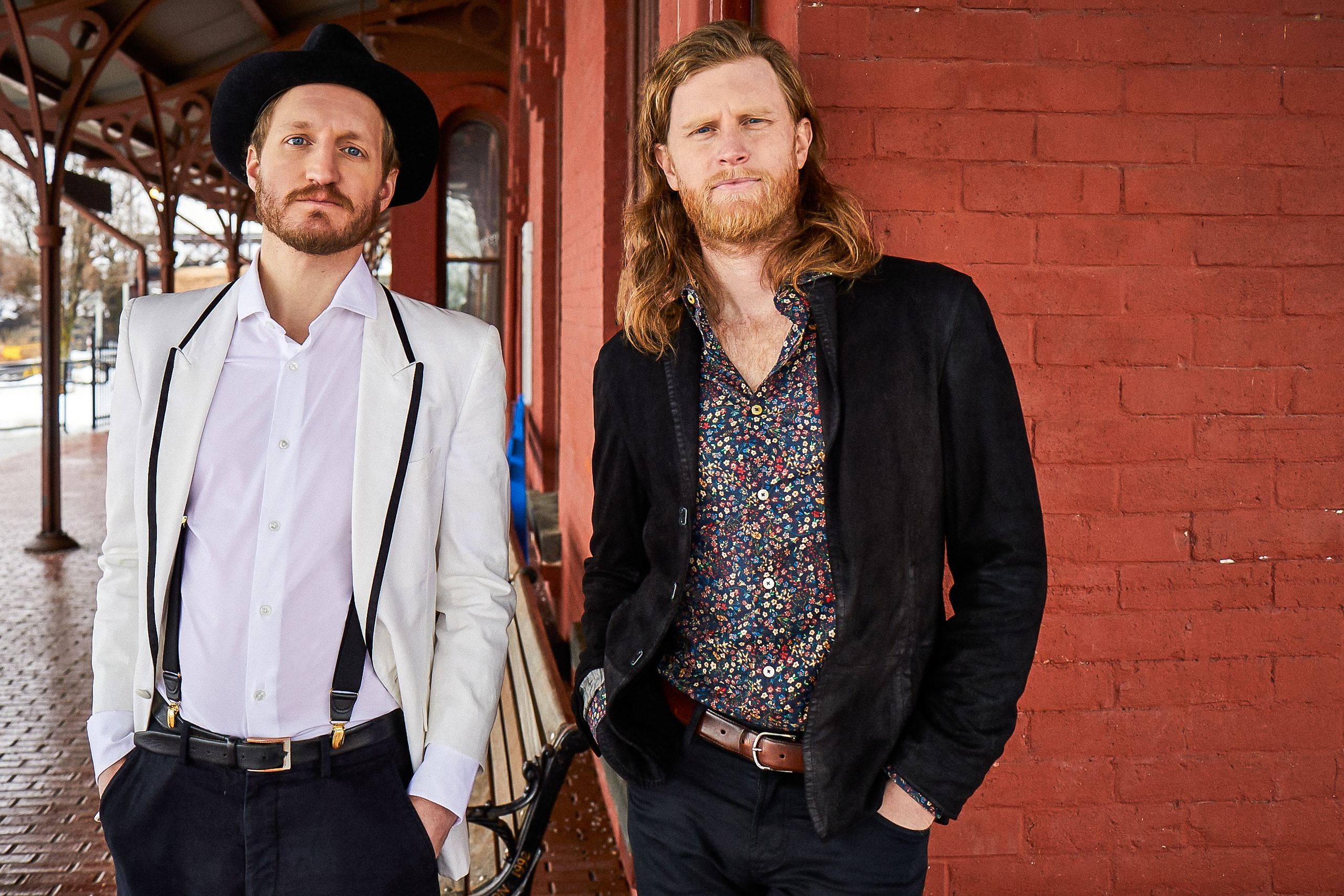
So it sounds like you were really surprised with where the album ended up. Was the end result vastly different from what you thought it was going to be?
Yeah. I mean, I think I would liken it to New Year’s Eve or an anniversary dinner; every year it’s built up to be this whole thing and it rarely lives up, and then some of your best nights out are when you’re in your sweatpants and it somehow becomes a wild night. So we went in with our sweatpants on in this analogy. I mean, we had these crude voice memos to start with, whereas in the past we had mapped it all out and did everything in advance, so all it was going in was executing this thing we had memorized. But if you listen back to a song like ‘Angela’, that was a last-minute addition on Cleopatra, and the reason I think that song stood out to a lot of people is because it was done in haste, it was done fast, it was done with this reckless abandon because we had to finish it.
This album has a lot of those songs. That energy is there. It’s almost subtle, but it’s not. Like, if I took it away, if we had done it entirely differently, you would hear it. You could tell. It’s like watching The Shining on Blu Ray – it’s awful, it should never be on Blu Ray. It was meant to be on film, that’s the right way to see it, and I feel like this album was meant to be made in a childlike way to get that feeling, otherwise, you’re just imitating something that’s already been done. I mean, you’ve got Jer drumming for the first time in a while, and he just lays back a lot and really serves the song. We all tried to wipe away the ego and have the song be the thing that shined. He has such a humble approach to that. I mean, a lot of people don’t even know he can drum. They’re like, “Oh, that’s the stomping guy with the tambourine!” and it’s like, “No, he’s a legit drummer.” He was so good at doing what the song needed, so having ‘Brightside’ kick off with those drums, it’s a new sort of flavour for someone who’s used to hearing our foot stomps or something.
Do you have a favourite track from the album? Why?
There are a few actually. I’m so glad ‘Bigshot’ is already out in the atmosphere, I was really excited about that. There’s a song called ‘AM Radio’ that I think is sort of an anthem in the way of a ‘Stubborn Love’ or a ‘Big Parade’. I can see shows ending with this song. It’s got this crescendo and climax that you don’t get often – it’s rare. It has this explosion to it, so I really love that one. There’s also a song called ‘Never Really Mine’. We grew up in New Jersey so Bruce Springsteen was like our rock and roll hero, our patron saint, so this is like our own version of what rock and roll is to us. We actually had Cindy Mizell who sang with Bruce for a while, and even The Rolling Stones and Dave Matthew’s Band, come sing on this, and she’s just this badass singer whose vocals are next level. You can really hear her. I love her voice.
Finally, what is it that you hope listeners and fans take away from the album?
I hope they take away a feeling. It’s simple: I think in the past because we were lumped in with the folk-rock band genre we thought our music had to have a literal story, but with this album, we wanted to cast a spell of feeling. My favourite music growing up, so much of it did that, so I hope they take that: the feeling of having these memories and bringing you back to a certain place because it did that to us in the studio.
Like playing ‘Brightside’ and hearing it back, I felt fifteen again, like I was behind the convenience store and in the alley with my friends, kids skateboarding and breaking bottles. You’re innocent, but there’s a twinkle in your eye. There’s some mischief going on, but not evil. Childlike wonder and feeling invincible. It’s like trying your first cigarette. This is a driving album; like every person I’ve ever shown it to, I’ve taken them on a drive, so I think it feels like that kind of record. You put it on and feel free and blast it. You put your hand out the window or the sunroof – that’s what it felt like, and why the album art is a hand coming up, whether it’s up from the ground or just feeling how you felt when you surf the wind. It’s that kind of feeling.
Interview by Lauren Olivo
BRIGHTSIDE releases on January 14th, 2022.

